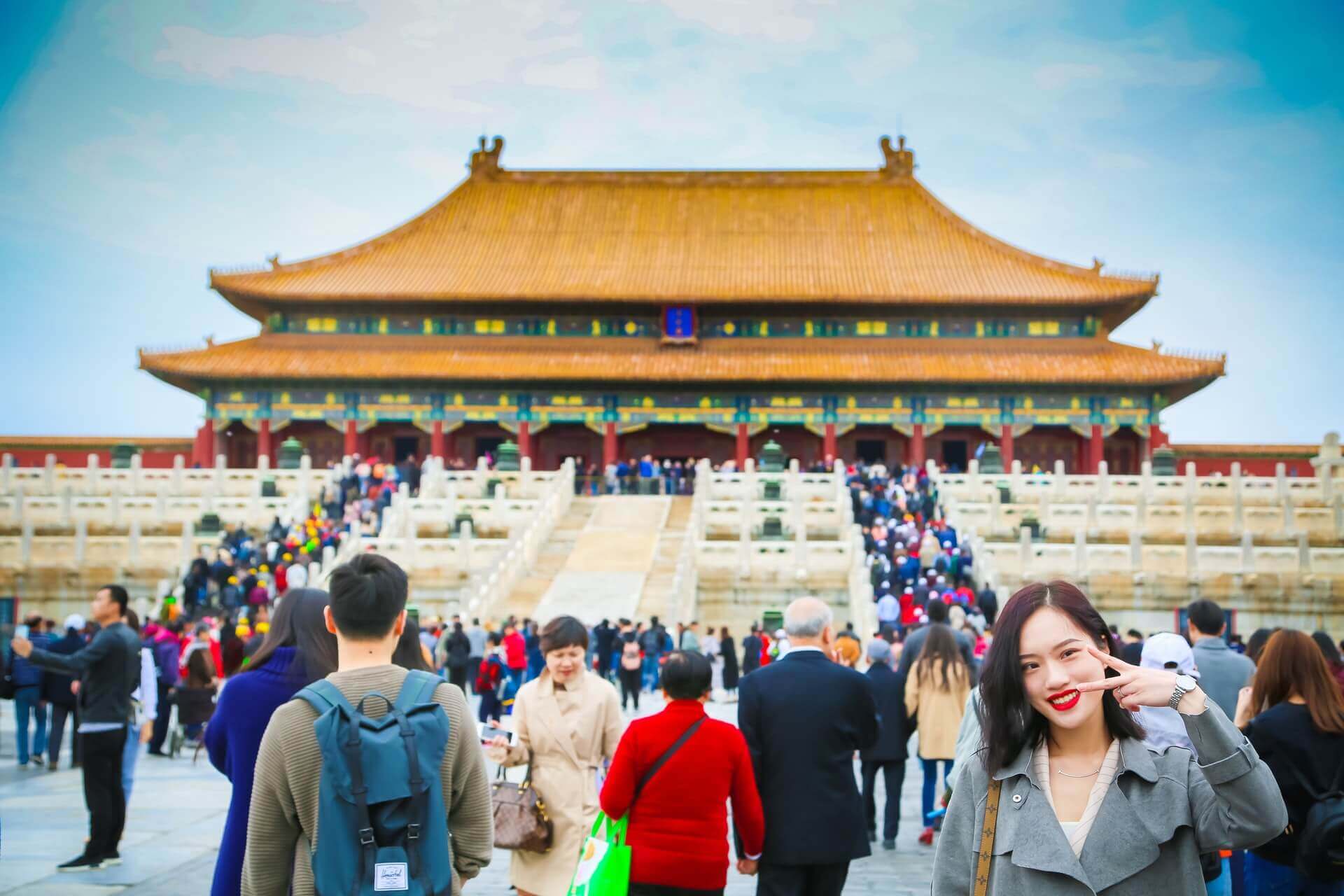Planning the Trip to China: Cultural Etiquette You Need to Know
Welcome to the exciting world of planning the trip to China, where ancient traditions meet modern wonders! If you’re gearing up for an adventure in this vibrant country, mastering cultural etiquette can transform your experience from good to unforgettable. Here at jusha.travel, we love sharing tips to make your China journey unforgettable, drawing from our deep passion for Chinese culture and travel. In this post, we’ll dive into essential Chinese culture tips, China travel etiquette, and insights from a cultural China guide to help you navigate customs with respect and ease. Whether you’re a first-time visitor or a seasoned explorer, understanding China customs for travelers is key to fostering meaningful connections and avoiding common pitfalls. So, let’s embark on this guide together and ensure your trip is as enriching as it is enjoyable! For more on understanding Chinese customs, check out our detailed resources.

Mastering Greetings and Social Interactions
When planning the trip to China, starting with proper greetings sets the tone for your entire adventure. Chinese culture places a high value on respect, hierarchy, and harmony, as explored in insightful resources like Discovering the Secrets of Chinese Etiquette: 19 Essential Tips. A simple hello can go a long way in building rapport with locals, and following China travel etiquette means being mindful of nuances that might differ from your own customs. For authentic dining experiences, discover top Chinese dishes to enhance your cultural journey.
First, always greet the eldest or highest-ranking person in a group. This shows deference and aligns with traditional Confucian values. For instance, in a family setting or business meeting, address them first with a gentle nod or handshake—keep it light, as a firm grip might come across as aggressive. Use formal titles like “Mr.” (xiansheng) or “Ms.” (nüshi) followed by their surname, rather than jumping to first names, which can feel too familiar. As a cultural China guide suggests, brief eye contact is polite, but staring is a no-go, as it can be seen as confrontational. Dive deeper into Chinese tea culture to connect with locals.
In public spaces, remember that personal space is limited in bustling cities like Beijing or Shanghai, yet public displays of affection are rare. You’ll often see friends of the same gender holding hands, which is a sign of platonic closeness rather than romance. To incorporate Chinese culture tips into your daily interactions, practice using both hands when exchanging business cards, gifts, or documents—it’s a gesture of respect that locals appreciate. If someone asks, “Have you eaten?” it’s not always literal; it’s a warm way of saying hello, so respond politely without overthinking it. For more on Chinese dining etiquette, visit our guide.
By paying attention to these subtleties, you’ll not only avoid misunderstandings but also deepen your connections, making your trip more authentic and rewarding. This approach to China customs for travelers ensures you’re seen as a respectful guest, opening doors to genuine experiences. Explore more Chinese cultural experiences.

Navigating Dining and Table Etiquette
One of the highlights of planning the trip to China is indulging in its incredible cuisine, but mastering China travel etiquette at the table is crucial for a seamless experience. Chinese dining is a social affair that reflects deep-rooted traditions, as detailed in guides like Things to Know About Cultural Etiquette of China Before Travelling. Start with seating: the most honored spot is typically farthest from the door, reserved for the eldest or most senior person. Wait for them to sit and begin eating before you do—it’s a simple way to honor hierarchy.
When it comes to using chopsticks, avoid sticking them upright in your rice, as this resembles incense at funerals and is considered bad luck. Instead, use them to pick up food gracefully, and remember to use serving utensils for communal dishes to maintain hygiene. For more on authentic Chinese dining, sharing food is a cornerstone of Chinese hospitality, symbolizing unity and friendship. If you’re toasting with drinks, hold your glass lower than that of your elder or superior, and if someone says “ganbei,” it means to finish your drink as a sign of goodwill. Fun fact: noodles represent longevity, so never cut them—slurping is actually encouraged as a compliment to the chef!
According to a cultural China guide, adhering to these practices not only prevents faux pas but also invites you into the heart of Chinese social life. Whether you’re at a street food stall or a formal dinner, your efforts will be noticed and appreciated, turning meals into memorable cultural exchanges. Immerse yourself in more Chinese culinary traditions.

Gift-Giving, Privacy, and General Customs
As you refine your planning the trip to China, don’t overlook the art of gift-giving and everyday courtesies, which are integral to China customs for travelers. Gifts symbolize respect and strengthen relationships, but as outlined in China’s Cultural Do’s and Don’ts, there are specific guidelines to follow. For example, avoid giving clocks, as they signify “time running out,” or anything in sets of four, which sounds like “death” in Mandarin. Opt for items like tea, fruits, or small souvenirs from your home country, presented with both hands.
When receiving a gift, politely refuse it once or twice before accepting—it’s a cultural dance that shows modesty. Don’t open it immediately unless urged; instead, express gratitude and save it for later. This ties into broader China travel etiquette, where privacy and reserved behavior in public are valued. In crowded areas, keep interactions low-key to maintain harmony, and steer clear of sensitive topics like politics. Learn more about gift-giving traditions.
For visits to religious or historic sites, such as the Forbidden City or Buddhist temples, dress modestly and walk clockwise around sacred areas. Always ask before taking photos, and respect any additional rules, like removing hats. These Chinese culture tips, as shared in a cultural China guide, ensure you’re not just a tourist but a mindful visitor. Punctuality is another key aspect—arrive on time for meetings or events to demonstrate respect. Dive deeper into Chinese customs.
By embracing these practices, you’ll navigate daily life with confidence, fostering positive interactions and uncovering the layers of China’s rich heritage. For an enriching experience, explore more customs.

Practical Insights and Modern Twists
Beyond the basics, planning the trip to China involves blending traditional China travel etiquette with contemporary realities, including the country’s rapid technological advancements. As per Cultural Etiquette Tips To Know When Traveling To China, adapting to these elements can make your journey smoother. For instance, mobile payments like WeChat Pay are ubiquitous, so download apps in advance and link them to avoid cash-only predicaments. For more on Chinese culture tips, consider these insights.
In urban centers, gestures like pointing are rude, so use an open hand to direct attention. Public conduct remains conservative—keep your voice down in crowds to preserve the collective peace. Interestingly, China’s tech-savvy environment means you might encounter facial recognition at attractions, which ties into efficient travel but requires awareness of privacy norms. Enhance your trip with insights into tech innovations.
These modern Chinese culture tips complement a cultural China guide‘s focus on China customs for travelers, offering a balanced view of old and new. Whether you’re haggling at a market or using high-speed trains, respecting these customs will enrich your exploration of China’s dynamic landscape.
In conclusion, by incorporating these essential Chinese culture tips, China travel etiquette, and insights from a cultural China guide, you’ll navigate China customs for travelers with grace and variance. Remember, planning the trip to China is about immersion, and a little effort goes a long way in creating lasting memories. Here at jusha.travel, we’re dedicated to inspiring your adventures, so dive into our collection of guides for more tips on everything from regional cuisines to tech-savvy travel hacks. We encourage you to share your own etiquette stories in the comments below, visit jusha.travel for more inspiration, or explore related articles like our guide to China’s must-visit destinations. Safe travels, and let’s keep the conversation going—your insights could help fellow explorers!

